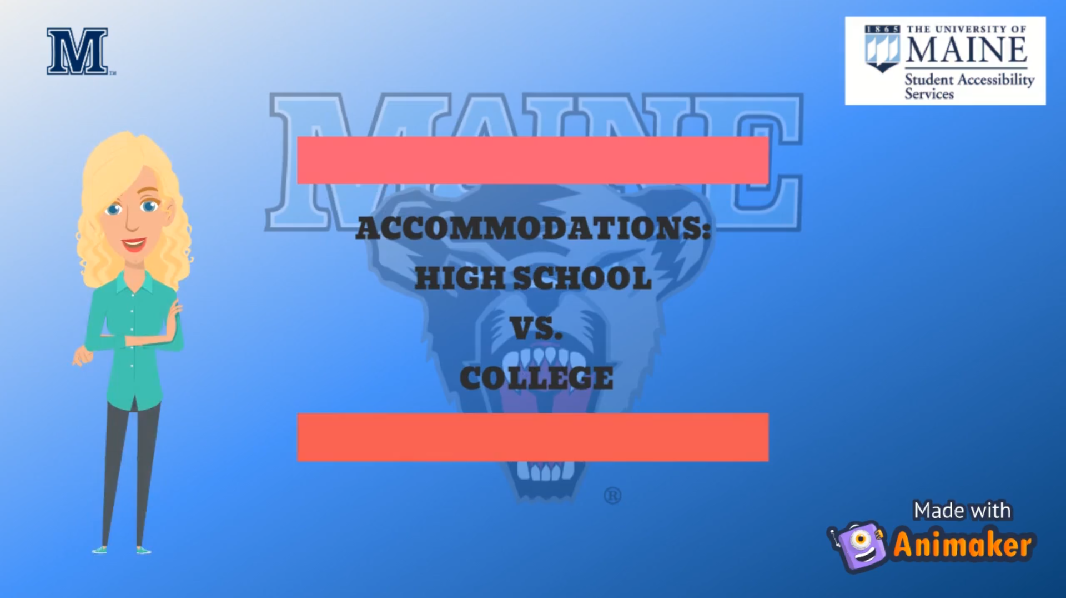More information:
Differences Between High School and College
Understanding the difference between K – 12 school experience and college experience, especially regarding the laws, is key to a smooth transition. In K-12 education, the Individuals with Disabilities Education Act (IDEA) outlines how educational supports are provided. In postsecondary education, the Americans with Disabilities Act and Section 504 of the Rehabilitation Act of 1973 form the legal foundation for protections to individuals with disabilities. This distinction forms the basis for the legal and procedural differences that every college student and their parents need to understand.
The paragraphs below highlight some of the important differences between high school and college. These may pose some challenges as students move into college. However, there are strategies that are being used across the country to assist students with intellectual disabilities to negotiate and overcome these potential issues. Those strategies are also listed.
Legal Protection
High School
The law is the Individuals with Disabilities Education Act (IDEA) — an ” entitlement” law intended to guarantee persons with disabilities a free and appropriate primary and secondary education. IDEA is about success. Funding is mandated to identify children with significant problems and provide them with appropriate services that facilitate successful learning, including course modifications. Education is a RIGHT and must be provided in an appropriate environment to all individuals. The Family Educational Rights and Privacy Act (FERPA) gives parents certain rights with respect to their children’s education records. Student and parent advocates for student, and family input is actively sought.
College
Laws are Americans with Disabilities Act (ADA) and Section 504 of the Rehabilitation Act.–“non-discrimination” statutes that are based on a civil rights model. They aren’t entitlement laws, and they don’t guarantee successful learning or mandate the creation of special programs for persons with disabilities. ADA is about access. The goal of Section 504 and the ADA is to remove barriers and to guarantee reasonable accommodations so that persons with disabilities have an opportunity to participate. FERPA transfers privacy rights to the student when he or she reaches the age of 18 or attends a school beyond the high school level. Parents do not have the right to review their child’s college records without the written permission of the student.
Impact on Students with Disability
This important and far-reaching change in legal protections has implications for all students with disabilities as they move to college. Because a college education is not a RIGHT, participation in college courses is often a negotiation between the college and the student. Students with intellectual disabilities are taking college classes, but that participation is often negotiated on a case by case basis, as they are not legally required to allow participation of students that are not deemed “otherwise qualified” to take a course. On campuses where there is an established program for students with intellectual disabilities, the staff of the program may assist with those negotiations. It is important to note that with appropriate supports in place, students with labels of intellectual disability are finding success in college courses of all types.
Advocacy
High School
Parents are actively involved in advocating for appropriate services and supports for their children. Schools reach out to parents and their participation is required. Parents talk directly to their child’s teachers on a regular basis. Students are expected to advocate for themselves.
College
Parent involvement is not always actively sought, and may be discouraged at times. College faculty and staff do not typically communicate with parents directly.
Impact on Students with Disability
This difference highlights the importance of self-advocacy skills. Students should be actively participating in their IEPs while in high school. They should be learning to speak for themselves and to advocate for their own needs. It also reminds parents that as their sons and daughters grow up, their role of parent becomes one of supporter and coach; no longer are they able to coordinate their child’s educational services. One successful strategy that has been used to assist the student to make this big leap into self advocacy is the use of forms or letters that a student can use to introduce themselves to a faculty member and explain their learning needs.
Individual Education Plans and Supports
High School
The IEP Team, which includes the student and school district develops Individual Education Plans (IEPs) and must follow this legal document in the provision of educational services. Core modifications of classes and materials are required. The School, with student and family input, is responsible for arranging for accommodations and modifications
College
There are no IEPs in college. The Disability Services Office will develop an accommodation plan based on documentation of disability that is provided by the student. Modifications are not required- only accommodations. Student must request accommodations from the college Disability Services Office.
Impact on Students with Disability
Students with intellectual disabilities may have had course modifications in their IEPs. In college courses taken for credit, modifications are not allowed. Some colleges work with faculty or a facilitator to identify course modifications or to create an individualized set of expectations for the course. In these cases, students would not receive a college credit. Accommodations are provided to students with disabilities, typically through the Disability Services Office. While it is expected that college students meet with the DSO to arrange for these accommodations themselves, there may be some support to help students with intellectual disabilities become familiar with these services or there might be a separate or additional service coordinator or coach to guide/mentor the student. Some students might still have an IEP, if they are participating in college classes while still in high school. The college is not expected to enforce or provide modifications or accommodations included in the IEP. These remain the responsibility of the IEP team.
Link to the Department of Education website with more information

